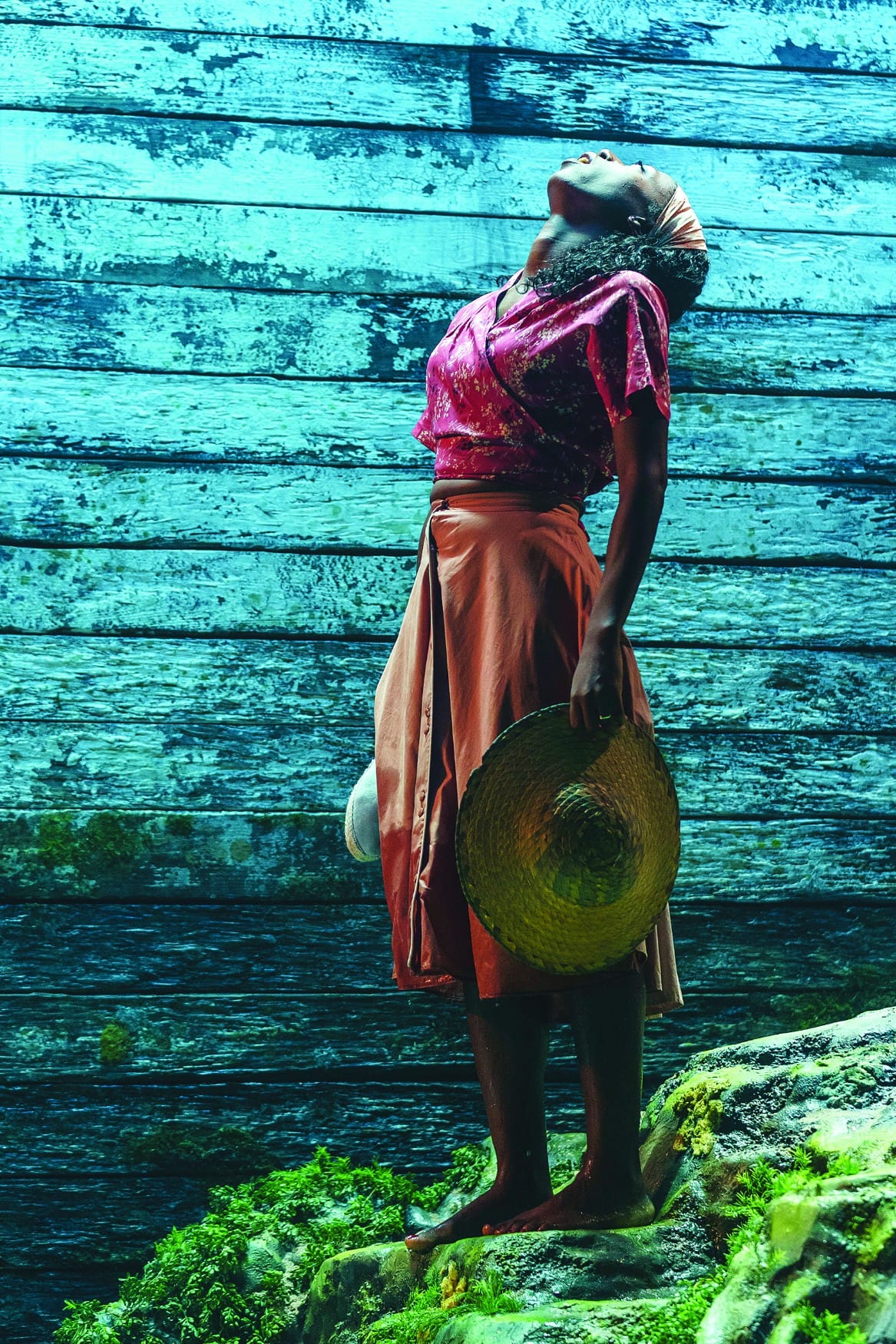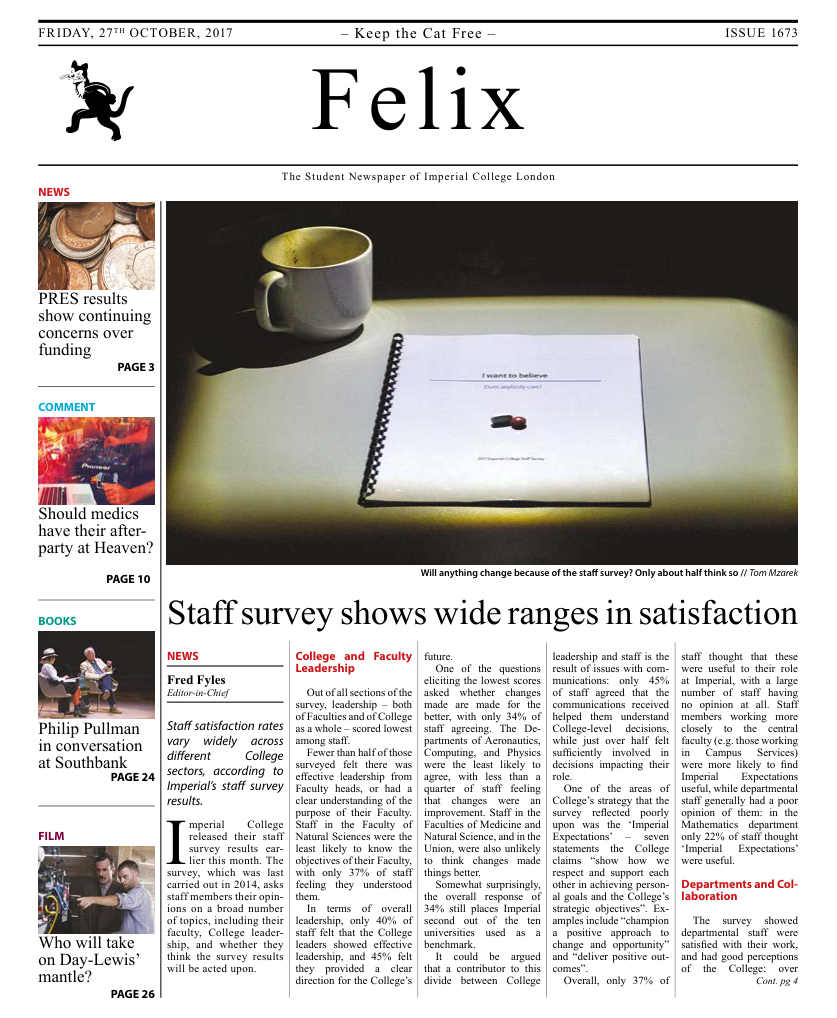The Lady from the Sea: An adaptation worth its salt?
We travel to the Caribbean by way of the Donmar Warehouse for a refreshing take on one of Ibsen’s later works.

Directed by Kwame Kwei-Armah – the British actor-cum-playwright and soon to be artistic director of the Young Vic – The Lady from the Sea tells a story of marital oppression and lost love. Calypso music plays and algae grows from the walls as Kwei-Armah relocates the play from 19th Century Norway to a tourist haven in the Caribbean. Here we find Ellida, the lighthouse keeper’s daughter; though her situation is anything but idyllic.
Ellida (Nikki Amuka-Bird) is the second wife of doctor Wangel (Finbar Lynch), serving as stepmother to his two daughters. Her mental state appears to be deteriorating, and her daily morning swims in the lagoon are becoming something of a compulsion. Wangel writes to the former tutor of his oldest daughter and childhood friend of his wife, in the hope that a visit from a familiar figure will bring back the woman he married. We learn Ellida is haunted by a teenage fling with a seaman to whom she became ‘engaged’ before he was forced to flee. His power remains over her, forging a gap between her and the doctor until he returns to fetch his mermaid bride.
Amuka-Bird gives an evocative performance of the glassy-eyed Ellida. She appears serene yet stifled, creating the perfect level of distance between her and the other characters, most notably her husband. Although the tale is centred around her struggles, she does not dominate the stage, allowing the other players to hold their own. Lynch complements this with his portrayal of the devoted doctor. He cossets his wife and seeks a cure for her detachment like one would a clinical indisposition, when we can all see that the only medicine she requires is freedom. Ellida is shackled by her wedding rings, to both Wangel and her absent mariner, and thus is left mercurial. The audience is forced to consider marriage as a form of oppression and duty, a way for men to keep their women at bay.
Subplots are allowed to develop yet remain self-effacing, bringing in elements of tragicomedy as the tutor confuses the ‘woman waiting’ for him described in the doctor’s letter with his ex-pupil, and proposes to her. We laugh at the cliché love-veiled-with-hate romance between the younger daughter Hilde – reemployed by Ibsen four years later in The Master Builder – and a travelling tortured artiste. Ellie Bamber does an excellent job as the pouting teenager, cruelly mocking the man she is clearly mad for (think Cher and Josh in Clueless). We enjoy to despise her target, the struggling sculptor Lyngstad (Jonny Holden), as his slapstick self-assurance provides a breath of fresh air from the melancholy of the main plot.

Writer Elinor Cook’s sophisticated revamp of the text – originally written by Henrik Ibsen in 1888 – to the 1950s works almost seamlessly. This is helped largely by Ibsen’s progressive humanism and use of strong female characters which drove the play ahead of its time. Cook and Kwei-Armah keep a good balance between bourgeois realism and the sea shanty mythology of the original fable. It must be said, however, that what seemed like a constant rotation of two people on stage at once, combined with sometimes-forced conversations and received pronunciation, did leave me feeling like I was watching an episode of Made In Chelsea.
The location shift to the Caribbean post-colonisation does bring rise to a discussion unintended by the original Norwegian text. We are unaware if we should pay attention to the casting choice of a black woman for Ellida, juxtaposed with the uniform fairness of the (apparently) expat family she has married into. This suspicion is reinforced later when Ellida’s estranged lover appears, sharing her darker skin tone. Their shift from affected elocution to an Antillean lilt when caught in a moment of passion does feel slightly heavy handed, implying race to be a contributing factor to Ellida’s isolation, but wisely Kwei-Armah does not let this encroach any further.
In trademark Donmar style the terraqueous set is simplistic but smart; a fish tank of rocks and submerged play boats are utilised to represent both the sea and the murky lagoon. The rest of Tom Scutt’s scenery consists of only a mossy brick wall and slightly damp odour, subtly lit to provide an eerie tension at just the right moments. At times it seemed like cast members were going for a paddle purely for the sake of it, but personally this didn’t dampen the impact of the performance.
At 100 minutes long with no interval the play seemed to steamroll ahead, leaving little time to get bored with overdramatics or flamboyant language. An unpretentious production with melancholy undertones softened by a few giggles, The Lady from the Sea takes you on a trip to the seaside but doesn’t go too deep.
Lady from the Sea is on at the Donmar Warehouse until December 2nd. Tickets from £10







